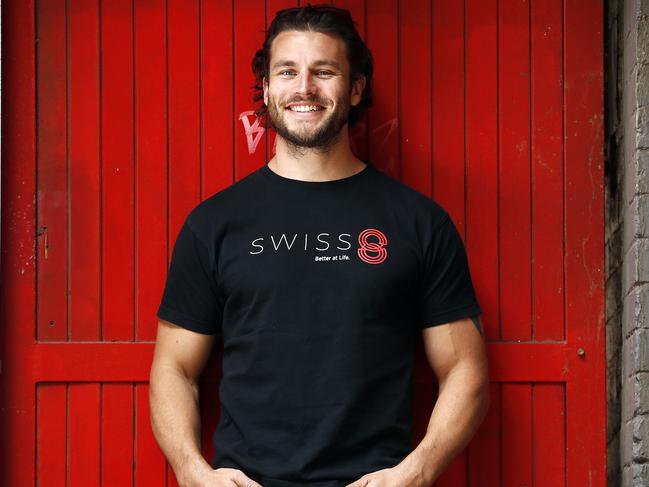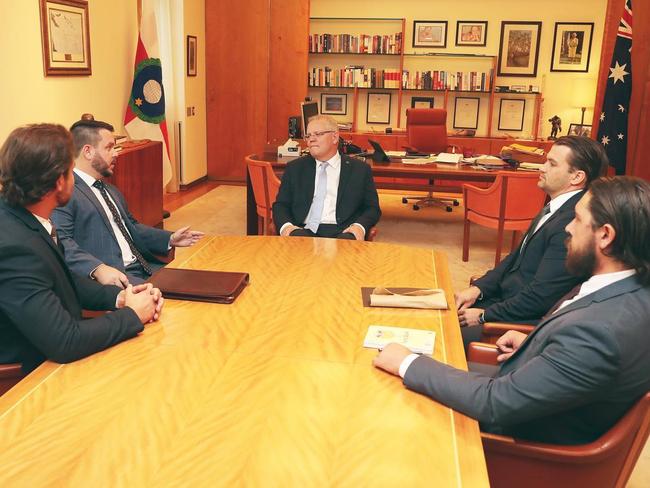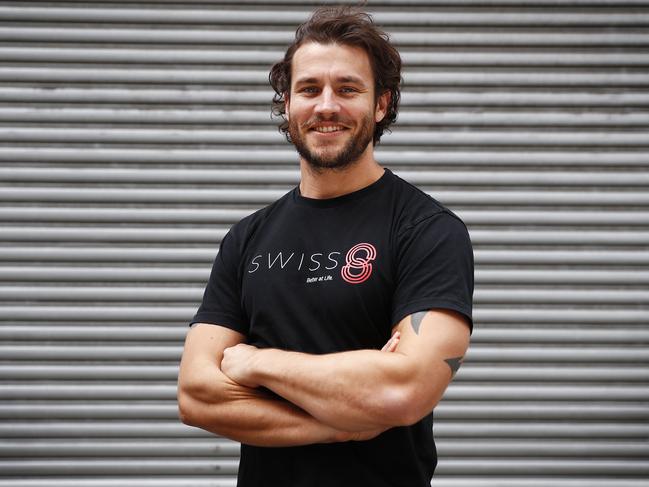Former soldier helps veterans deal with trauma of ‘lost tribe’
When Adrian Sutter left the military in 2011, he wasn’t the same man. But his return to civilian life wasn’t PTSD, it was the loss of his “tribe”. The soldier now helps others deal with the isolation and grief of losing their tribe upon leaving military life.
NSW
Don't miss out on the headlines from NSW. Followed categories will be added to My News.
Strong. Confident. A warrior. A career soldier: that’s how Adrian Sutter saw himself.
But when the East Timor and Afghanistan veteran left the military in 2011 to help care for his terminally ill sister, he suddenly felt none of those things.
Suddenly he was moody, irritable, ill-at-ease.
“I suffered from anger issues. I had a short fuse and built-up aggression. I wasn’t a nice person to be around,” the now 34-year-old says.
“My father challenged me on it and suggested I may have post-traumatic stress disorder. I knew I wasn’t acting normal but I just did not think PTSD was the proper diagnosis.”
For three years, Sutter drifted through civilian life, gradually feeling worse.

Then the penny dropped. He wasn’t traumatised. He had lost his tribe; the disciplined, fit, active life with comrades he trusted implicitly.
“It takes the military six months to train you to be a soldier,” he says now.
“You are taken out of civilian life and trained to act, behave and think like a soldier, yet there is no help returning back to civilian life. Our armed forces personnel are expected to make their own transition back to being a civilian.”
MORE NEWS:
Beach towns to run out of water within weeks
330m towers set to supercharge Sydney skyline
Having identified why things had gone off the rails, Sutter took control of his life, reconnected with his ex-comrades and become the disciplined man he once was. Life became brighter for Sutter.
But in 2017, at the funeral of yet another young Afghanistan veteran, Jesse Bird, Sutter decided he had to use his experience to help others and stop more mates taking their own lives.
He firmly believed the problem killing his friends was not necessarily trauma, but something much more basic: the isolation and grief of losing their tribe upon leaving military life.
Sutter is not critical of the support services put in place by the Department of Veteran Affairs and says the work being done by the organisation is appreciated, but he felt contemporary veterans who had similar experiences could do something to help.

Sutter gathered a group of mates and fellow veterans with one purpose: to help fellow veterans recreate for themselves the structure and discipline of military life in a civilian context.
They developed an app, Swiss 8, that provides a daily schedule based around eight core principles of a healthy and productive life: fitness, nutrition, mindfulness, sleep, minimalism, time management, personal growth and discipline.
A typical day might involve completing simple tasks, such as making your bed when you get up, which shows you have the discipline to take control of your day.
This is followed with mediation, a training session, healthy meals and using travelling time to stimulate and educate the mind listening to podcasts.
An hour before bed there is a guided process of powering down and eliminating ‘blue light’ which involves turning off electronic devices such as phones and computer. These daily schedules provide simple structure to the day.

Part of the inspiration, Sutter says, came from American journalist Sebastian Junger’s book ‘Tribe’, about how humans – especially veterans – struggle with the absence of communal values that once bound communities so tightly. The ‘Swiss’ reference is to the neutrality and precision which define Switzerland’s international standing.
The idea is to sell Swiss 8 to corporations to help their staff manage time and wellbeing, using the revenue to fund a free version for all veterans.
“It’s not rocket science but it’s something we think will help veterans transfer from the armed forces to civilian life,” Sutter says.
Currently Swiss 8 are in discussions with the University of Newcastle to evaluate the effectiveness of the Swiss 8 app in managing the mental health of ex-ADF members.
Last week Sutter and three Swiss 8 co-founders had a face-to-face meeting in Canberra with Scott Morrison, arranged by one of their greatest supporters, Queensland Liberal MP Phillip Thompson, to discuss solutions to the growing epidemic of mental illness and suicide among retired service personnel.
Sutter says: “One thing the armed forces teach you is to fight for your mates. That is exactly what we intend to do.”
Originally published as Former soldier helps veterans deal with trauma of ‘lost tribe’
